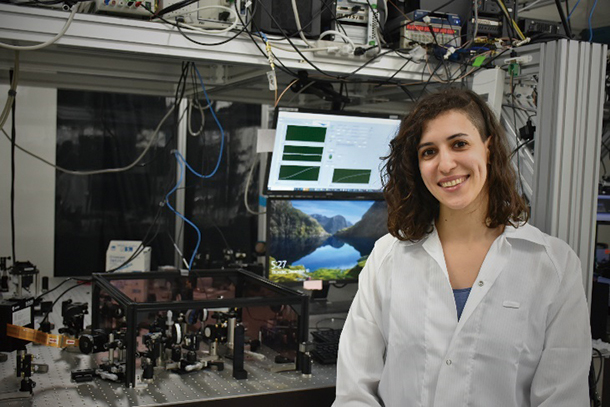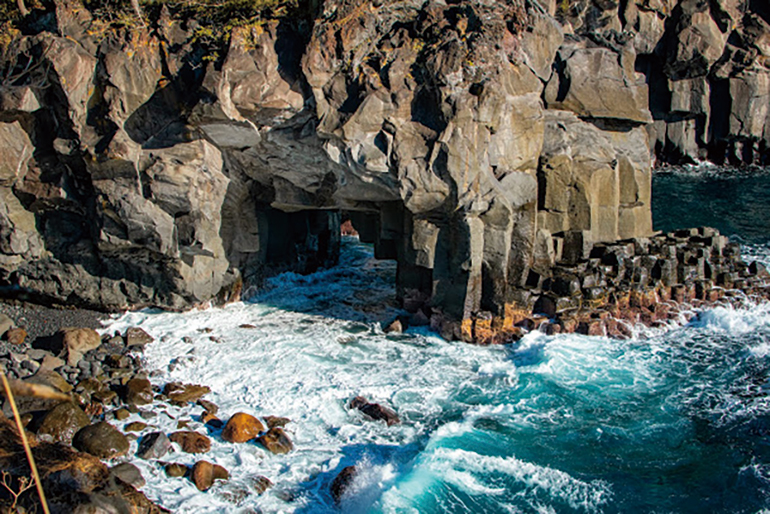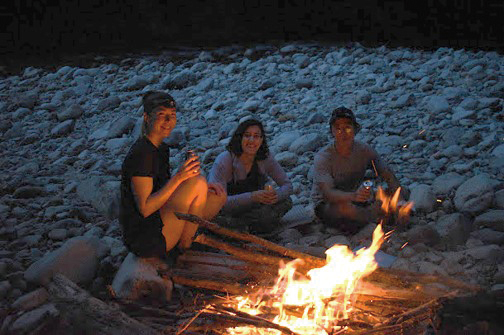A culture of taking care of each other
 Photo of my working area at Goda-lab, the University of Tokyo.
Photo of my working area at Goda-lab, the University of Tokyo.
When I decided to come to Japan, I was not acquainted with Japanese culture. I had only heard stereotypes, I had watched Mononoke Princess (もののけ姫) in Spanish as a kid and I could say barely three words in Japanese. I had no idea what I was jumping into. But I was in love with the science project I wanted to do in the School of Science at the University of Tokyo. Here, in Goda-lab, I could use one of the fastest Raman flow cytometers to date and learn how to build coherent Raman scattering microscopes for cell analysis. I would have moved to anywhere in the world for this opportunity.
Moving to Japan (November 2019) was a dose of reality. English would not take me very far, and my Japanese was way too basic for handling most of the paperwork that needed to be done. Finding a flat to live turned out to be a real challenge. My tattoo was not ok in most onsen. Forgetting to take off my shoes was the worst of sins. The first weeks felt like I had just started to play a videogame without knowing the rules and with a gamepad controller written in mysterious kanji. This was both frustrating and exciting, as it was a constant challenge to do even the simplest of things. How do you buy food without meat if you cannot read nor the ingredients nor the menu? At the same time, I was constantly awed by the beauty of Japan. A city as crowded as Tokyo where the buildings open-up to discover a beautiful temple, that makes you feel like you just travelled in time. I got myself a camera and enjoyed discovering Japan and it’s nature. I travelled to the mountains, to find the moss-covered rocks where the Kodama would sit in Mononoke Princess, and the mysterious tunnels like the one that took Chihiro to the spirit world. I went by sea, to discover the gorgeous cliffs of Manazuru or Jogasaki.

Rock arc formation in Jogasaki by the sea, south from Tokyo.
And then the culture started to sink in. The truth was, even when there was a language barrier, a smile took me very far. Japanese people made the effort to help me even if they could not understand me. People would stop in the middle of the street to help when they noticed I looked lost, without me having to ask for directions. After a year here, I have grown so accustomed to the Japanese culture that I fear a real shock when I return to Europe. If I had to choose a word to define people in Japan, it would have to be caring. This is the culture where you can forget your wallet on a restaurant table and return the next day to find it exactly where you left it, untouched. The police boxes (koban) have air-pumps for the cyclist who find themselves with a flat tire. And after finishing work, people do not just say goodbye, but they thank their co-workers for their hard work.
 Relaxing by the fi re in a camping and
Relaxing by the fi re in a camping andwaterfall climbing trip(sawanobori).
I have made great friends here in Japan, that have taught me more about the Japanese culture, even sharing homemade Mochi with me after the holiday or making Takoyaki in their living room. Japanese culture has taught me to be more aware of the people around me, to acknowledge their presence with a small bow, and to anticipate their needs. To be nicer, and to be kind.
| 2009 – 2014 | Bachelor’s degree in Physics, University Complutense of Madrid, Spain |
| 2010 – 2015 | Bachelor’s degree in Biochemistry, University Complutense of Madrid, Spain |
| 2015 – 2019 | PhD in Physics, Molecular and Nanoscale Physics Group, University of Leeds, United Kingdom |
| 2019 – 2021 | JSPS research Fellow, School of Science,Department of Chemistry, The University of Tokyo. |
理学部ニュース2021年3月号掲載


